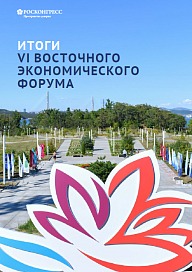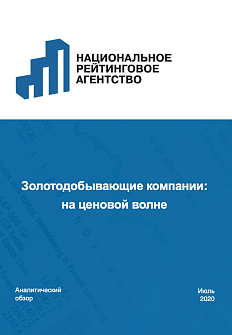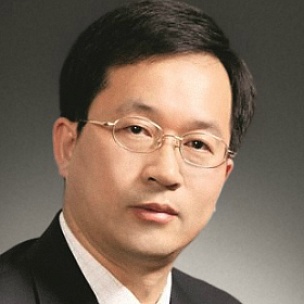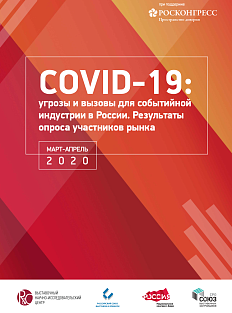The VI Eastern Economic Forum (EEF) was held on September 2-4 in Vladivostok. The theme of the Forum — " The Opportunities for the Far East in a World under Transformation«. The main goal is to find practical solutions for unlocking the unique potential of the Far East and the development of the entire Russian economy, as well as expanding international cooperation in the Asia-Pacific region.
«A record 380 agreements were signed at the Forum worth a total of RUB 3.6 trillion. These figures pay testament to the practical benefits offered by the Forum, as well as to the role the event plays in the development of the Far East,» said Anton Kobyakov, Advisor to the President of the Russian Federation and Executive Secretary of the EEF Organizing Committee.
The business program of the Forum in 2021 was especially rich and focused on three semantic blocks: people, the economy and new challenges.
The Far East is a 21st century priority for Russia
Naturally, the Far East and part of the eastern Arctic are Russia’s gateways to the Asia-Pacific region. Therefore, the main topic of the EEF was the search for opportunities to unleash the potential of the Far East for the most dynamic development in the region, and the discussions of the Forum emphasized the strategic importance of the Far East for Russia and the need for its advanced development. The main points of discussion were problems with the development of infrastructure, attracting investment in the region. According to the Forum participants, the development of railways, ports, industrial and residential clusters, climate projects should turn the region into leaders in development in the country by 2030.
By 2030, it is planned to attract 11 trillion rubles to the economy of the Far East and create 360,000 jobs. Deputy Prime Minister of the Russian Federation and Presidential Plenipotentiary Envoy to the Far Eastern Federal District Y. Trutnev urged to consider investments in the region not as support for the local economy, but as a highly profitable project. «We were able to report at the Forum that grants to the Far East have already been more than recouped. We have put RUB 80 billion into the region and have seen tax revenue from companies benefitting from incentives reach RUB 123 billion. In other words, the public purse has already directly benefitted from development in the Far East,» he said, emphasizing that the Russian authorities are ready to continue and expand this work.
Interest and readiness to take part in the implementation of large-scale projects in the Russian Arctic and the Far East were expressed by representatives of most foreign countries participating in the Forum, and, of course, the Northern Sea Route stands apart in this context, which has every chance of becoming a key transport and logistics route in the future. artery not only on a regional but also on a global scale.
The «Green Challenge» became an important and pivotal content track of the entire business program of the Forum. The climate agenda is of relevance in the Far East of Russia due to the significant risks of global climate change for the northern regions of the planet, and therefore the region should not only keep up with the global «green» trends, but strive for a leading role in these processes, setting the pace and direction of efforts for the whole world. Foreign participants of the Forum were also actively called to pay attention to the climate factor. «I would also like to talk about climate change, which is a very important topic. Like the pandemic, it brings us all together regardless of the structure of our economies», said Kevin Michael Rudd, Prime Minister of Australia (2007–2010, 2013).
People are the greatest resource of the Far East
Such large-scale infrastructure projects as the construction of the Eastern Railway Branch, the development of the Northern Sea Route, the development of ports in the Far East, the creation of new petrochemical plants, metallurgical plants, shipyards, and promising hydrogen projects have a common problem. In the discussion at the Forum of almost any ongoing or planned project, there were words about the need to attract the population to the region, especially students, young entrepreneurs, researchers, and scientists. An extensive part of the program of both the entire Forum and its «youth» part was devoted to finding ways to solve this problem.
The shortage and outflow of the population is a critical risk, without the neutralization of which the solution of large-scale tasks facing the Far East seems almost impossible. The availability of affordable and high-quality housing, as well as modern and comfortable infrastructure, is the starting point in solving this problem.
Basic programs to support the population in the region have been operating for several years. «A special mortgage programme was launched in the Far East in 2019. Around 24,000 families have already used this mortgage offer to improve their living conditions,» Vladimir Putin said. However, the Far Eastern Mortgage, although it created a steady demand for housing in the region, led to growing pains — supply does not keep pace with demand. «Staffing at federal law enforcement and security bodies is often at 50%. Why aren’t they coming? Because there’s nowhere to live — it’s impossible to rent a decent place,» said the governor, chairman of the government of the Magadan Region, Sergei Nosov. Constructors were tasked with increasing by 1.6 times the volume of housing construction in the Far East by 2024 compared to 2019. The President of the Russian Federation also instructed the government, with the participation of the Russian Railways, the Federal Road Agency and major constructors in the region, to think over the creation of a construction cluster in the Khabarovsk Territory, which will solve one of the main problems of the industry in this part of the country — the shortage of building materials. «What other methods could help rein in costs? Encouraging competition and industrializing construction,» said the Governor of the Sakhalin Region Valery Limarenko.
The housing issue is not the only aspect of attracting people to the Far East, which was widely discussed. Thus, additional measures will be taken in the region to support healthcare, education, and the social sphere as a whole. In 2022 alone, the Far Eastern regions will receive an additional 20 billion rubles for the modernization of social facilities. Annual spending on health care in the Far East, primarily in remote and sparsely populated areas, will increase by more than 6 billion rubles. A possible change in the form of providing medical care in small settlements was also discussed. In the Far East, they will increase the number of budget places in universities, improve the quality of higher education, update educational programs and infrastructure. In particular, as Vladimir Putin noted, in the next 10 years the Far Eastern Federal University should become one of the leading universities in the world.
The new economy
The discussion of almost all economic and social issues at the Forum sooner and later came to one topic — the COVID-19 pandemic. As the participants of the forum noted, traditional health management systems turned out to be practically unprepared to counteract the pandemic. But the key to effectively countering the spread of the virus was the rapid reconfiguration of medical care systems. And the key factors for the further development of global healthcare will be the issues of preventing such crises and increasing the availability of quality medical care in any conditions.
As one of the most important consequences of the pandemic, Forum participants noted the acceleration of the digitalization pace and, as a result, the increasing relevance of digital sovereignty. At the same time, the participants in the discussions agree that in fact we are talking about the preservation of digital sovereignty by countries. «We have search systems, search engines, voice assistants — and a number of other products — things we can use as a foundation to sustain and develop our digital sovereignty,» said Maxim Parshin, Deputy Minister of Digital Development, Communications and Mass Media of the Russian Federation. But their development is directly linked to the severity of regulation, the norms of which are still being formed and do not have clear answers to questions about the ownership of data and their movement.
As a result, the Forum once again showed that the economy of the new time will be very different from the usual economic landscape of the 20th century. Man, and Nature are no longer factors of production. This paradigm no longer works. The world as a whole and its individual regions, such as the Far East, are forced to make a new qualitative leap, which will lead to a new economy, an economy for the sake of people, an economy of sustainable development based on ESG factors, an economy of the 21st century.





